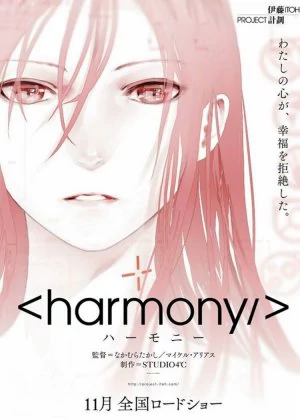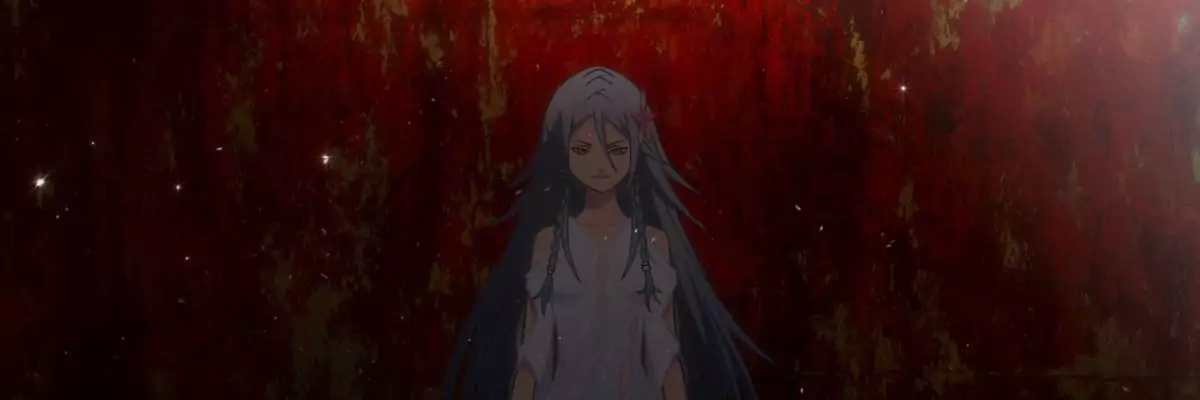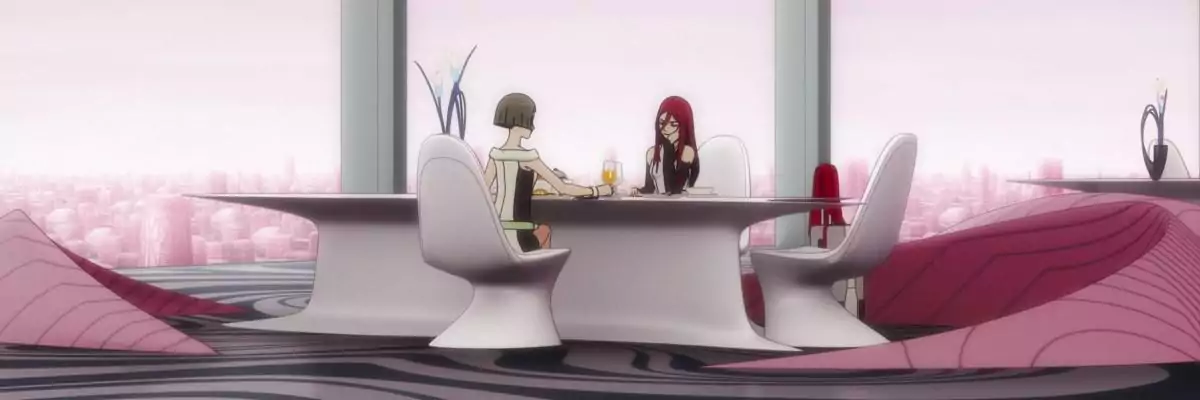Harmony

When I happened upon Hamoni [Harmony], the promo material didn't immediately appeal to me. It wasn't until I noticed Studio 4°C was behind the project that I decided to give the film a fair chance. And it's a good thing I did, because even though it's not perfect, it's the kind of film that's been sorely missing from anime line-ups lately. It's only then that I noticed Michael Arias and Takashi Nakamura were credited as directors, a happy surprise that at least in part explains why this film turned out the way it did.

Even though anime isn't in the worst state right now, there's still a serious lack of deeper, more thoughtful films. It's nice to see people like Mamoru Hosoda and Makoto Shinkai rise to the top, but they're all dipping their feet in the same pond, one that was dug by Ghibli. I'm not saying these aren't great directors making great films, but there's a severe lack of stylistic and topical diversity in Japanese animation that wasn't there before. Because of that, films like Harmony are important and should be championed.
Harmony is based on a novel by Project Itoh, a web designer (hence the
Explaining the plot in a mere paragraph is somewhat of a challenge, because the world itself is as much a character as the people inhabiting it. Harmony is set in the future, 50 years after a cataclysmic event called "The Maelstrom". Rather than let civilization crumble (what would've been the typical sci-fi cliché), humanity pulls together and creates a better, happier yet more controlled world. Our future selves accomplished this by installing a system in each and every human, monitoring them and triggering them to live a better, healthier life. While society flourishes, some outliers can't seem get used to this blessed life, feeling that the loss of freedom and control is worse than its benefits.

Visually, Harmony is a pretty peculiar film. Itoh crafted an elaborate sci-fi/fantasy world and Arias and Nakamura succeed in bringing that world to life. Mostly that world is very pink, which may not sound like such a crazy choice for a future utopia, but the effect is a little jarring nonetheless. And while the world itself is detailed, settings can feel a little empty at times. That isn't to say the film looks bad though. The animation is up to par and Studio 4°C's agile camera adds a dimension of its own. The cell-shading is virtually seamless and when the film switches between traditional to cell-shaded animation the effect is nothing less than stunning. Overall the film looks pretty impressive, it's just that select scenes come off a little empty and lifeless.
The soundtrack is solid, but not too demanding. Arias surprised friend and foe when he enlisted Plaid to do the score for Tekon Kinkurito, this time around the music is a bit more in line with what can be expected from a Japanese feature film. It's a good selection of tracks, it's moody and atmospheric, it does fit the film rather well, but at the same time it's also a little safe and predictable. Maybe it isn't quite fair to judge the music here based on Arias' previous work, but I think I hoped for something with a bit more character. The dub on the other hand is classy, a necessity for a film that is quite monologue-heavy. Make sure to watch the Japanese dub though, as the American feels flat and lifeless in comparison.

Harmony can be quite heavy-handed at times. The film doesn't build up to a sprawling action finale, it builds up to a somewhat theoretical and conceptual discussion illustrated by all that came before. It's a daring choice for sure, but it reminded me of the 90s and early 00s anime that gave the genre (if you can call it that) a good name. It's not just a fancy premise that is abandoned in favor of simpler entertainment value. It's not just some tired good versus bad stand-off with a simple conclusion. At the heart of Harmony lies an interesting ethical challenge that is examined to its fullest, but leaves it to the audience to figure out an appropriate answer.
Maybe the soundtrack could've been a little better, maybe the visuals appear a little empty at times, but that's just nit-picking. Harmony looks astounding, Itoh's source material is handled with the proper respect and so is the audience. It's not an easy film, it does require a bit of effort on the viewer's part, but it's a very welcome diversion from the more light-hearted animes that dominate the current landscape. Arias and Nakamura keep the Studio 4°C reputation high and deliver a film that should have no trouble appealing to slightly older anime fans.